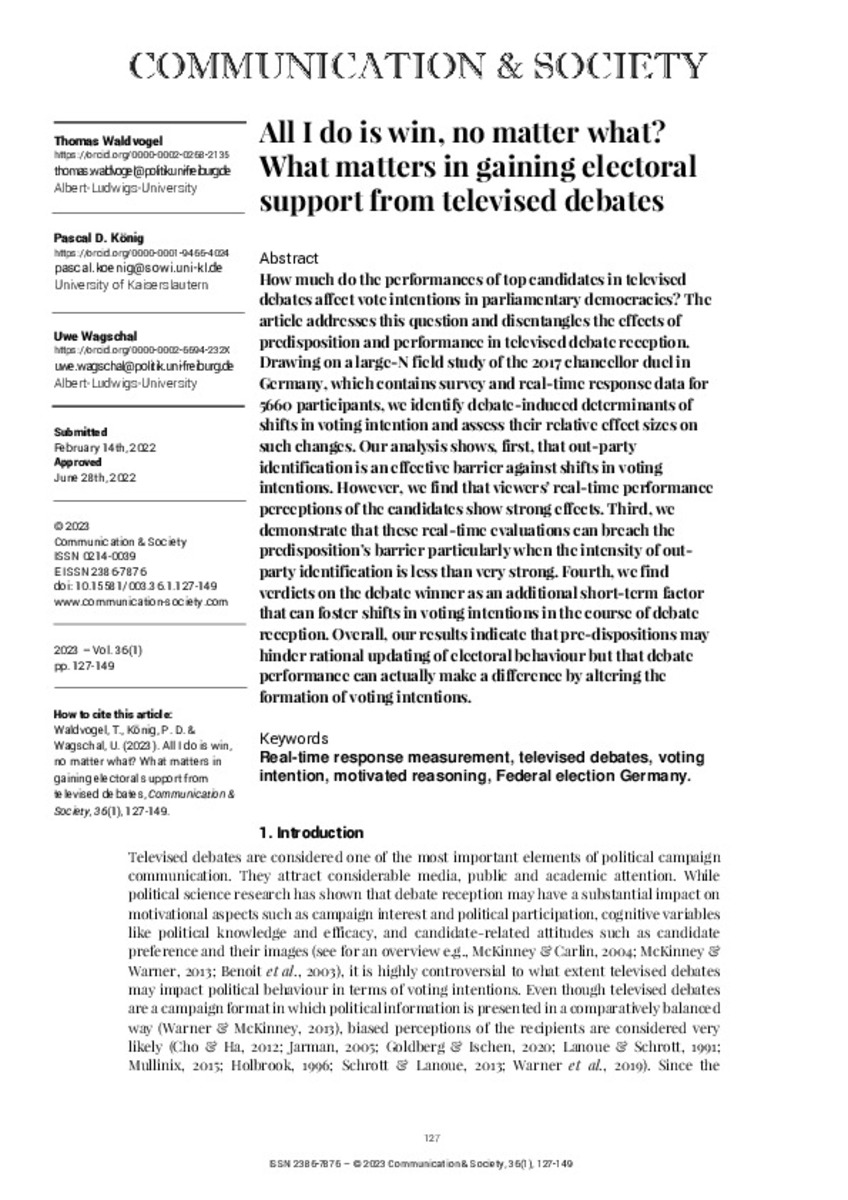All I do is win, no matter what? What matters in gaining electoral support from televised debates
Fecha de publicación :
2023
Editorial :
Servicio de Publicaciones de la Universidad de Navarra
Cita:
Waldvogel, T. (Thomas); König, P.D. (Pascal D.); Wagschal, U. (Uwe). "All I do is win, no matter what? What matters in gaining electoral support from televised debates". Communication & Society. 36 (1), 2023, 127 - 149
Aparece en las colecciones:
Estadísticas e impacto
0 citas en

0 citas en

Los ítems de Dadun están protegidos por copyright, con todos los derechos reservados, a menos que se indique lo contrario.








